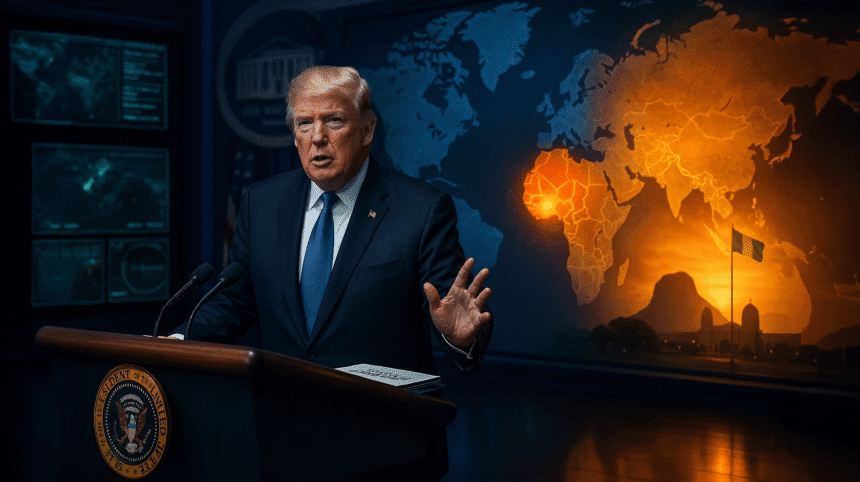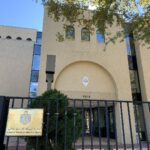Trump has threatened potential military action against Nigeria, accusing the West African nation of failing to stop what he described as the “mass killing of Christians.” The remarks, made in a social media post over the weekend, have sparked outrage and unease across Nigeria, where officials insist the country’s internal conflicts are far more complex than a simple religious divide.
Trump said he had instructed the Pentagon to “prepare for possible action” should the Nigerian government “continue to allow the killing of Christians.” Calling the violence “horrible atrocities,” he warned that any U.S. strike would be “fast, vicious, and sweet.”
Tinubu Pushes Back on Sovereignty
Nigeria’s President Bola Ahmed Tinubu swiftly rejected the tone of Trump’s threat, stressing that any cooperation with the U.S. must “respect Nigeria’s sovereignty.” Tinubu also dismissed the portrayal of Nigeria as religiously intolerant, calling it an unfair and misleading characterization of Africa’s most populous country.
Presidential spokesperson Daniel Bwala suggested that Trump’s remarks might be a “negotiating tactic,” noting that Washington and Abuja already collaborate closely on counterterrorism operations through intelligence sharing and weapons procurement.
A Long-Running Crisis of Violence
The controversy revives global attention on Nigeria’s deep-rooted security crisis. Islamist groups such as Boko Haram and Islamic State West Africa Province (ISWAP) have waged brutal campaigns across the country’s north for over a decade, displacing millions.
Rights organizations say Christian communities are often targeted, though the violence has also claimed thousands of Muslim lives. Amnesty International estimates that over 10,000 people have been killed since 2023, while advocacy groups like Open Doors and International Christian Concern describe it as “targeted persecution.”
Reverend Ezekiel Dachomo, a vocal church leader, accused the government of “downplaying an ongoing massacre,” while activists argue that the government’s figures understate the scale of the killings.
Mineral Wealth and U.S. Interests
Behind the humanitarian rhetoric, some analysts see strategic motivations. Nigeria holds rich deposits of rare earth elements like lithium, cobalt, nickel, and neodymium, essential for defense technologies and electric vehicles. Many of these resources lie in Nigeria’s conflict-ridden northeast, the same area targeted by jihadist groups.
Political commentator Cyril Abaku said some Nigerians might welcome U.S. support “if it helps protect communities,” but others fear Washington’s true aim could be access to minerals.
Calls for Reform, Not Rescue
Human rights activist and former presidential candidate Omoyele Sowore criticized the prospect of foreign intervention. “What Nigeria needs is not a foreign savior,” he said. “It needs accountable leadership that protects its people and ends corruption.”












